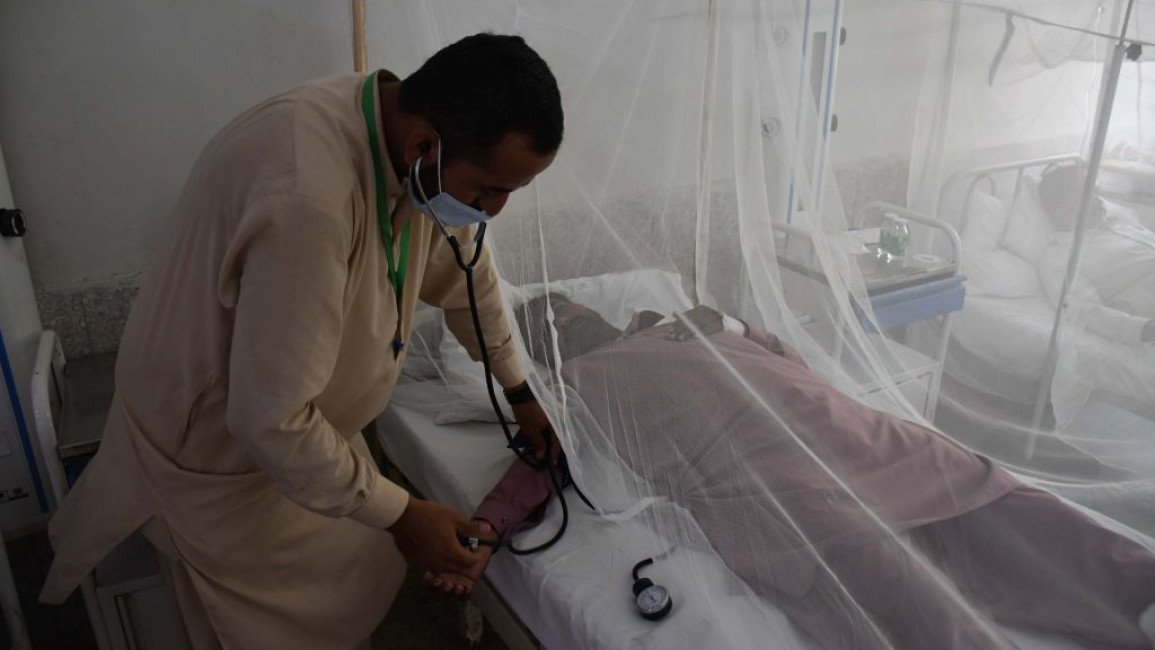Flood-hit Pakistan sees worrying rise in deadly malaria and dengue fever diseases
Cases of mosquito-borne diseases, especially dengue fever and malaria, are rising in Pakistan as the South Asian country struggles with the effects of the devastating floods that left large swathes of the country underwater for weeks.
The southern province of Sindh - one of the worst affected by the floods - has reported more than 3,072 cases of malaria and 1,098 of dengue fever this month, according to Sindh's Information Minister Sharjeel Memon as reported in Dawn.
Pakistan updates:
— Sana Saeed (@SanaSaeed) September 15, 2022
Floodwaters are threatening a power station in Dadu, Sindh - which is one of the worst affected areas. Millions dependent.
Authorities say it may take up to 6 months for floodwater to recede.
Dengue cases increased by 50% in Sindh, sparking an emergency. pic.twitter.com/z14gHNbqTn
At least nine people have died of dengue fever so far in September, he added, all of whom are in Karachi - Sindh's capital and Pakistan's largest city.
More than 30 million people have been affected by the flooding and around 1,500 lost their lives.
Around a third of the country was submerged in water following the unprecedented floods and the government has warned of a looming health crisis due to the disaster.
Even though the floodwaters have slowly begun to recede, stagnant water remains all over the affected areas creating the perfect breeding ground for mosquitoes.
This is leaving those who live nearby, many of whom were displaced by the floods and living in tents, especially vulnerable to diseases borne by the insects.
"We are trying our best, but my biggest fear is that we're sitting with the makings of a human catastrophe,” said Dr Khosa, a monitoring officer quoted by the BBC.
"So many people are getting sick - it's dengue cases, malaria, and gastro problems and we can't help them all."
UN Secretary-General Antonio Guterres met with victims of the disastrous floods last week and expressed his concerns about the situation in Pakistan. He urged wealthier countries to do more to help the country recover from the tragedy.
"Pakistan is not responsible for this crisis, this was a product of climate change, this was caused by those that are populating the atmosphere with greenhouse gases. The G20, the biggest economies in the world, they represent 80 percent of the emissions, Pakistan less than 1 percent," he told the BBC.



